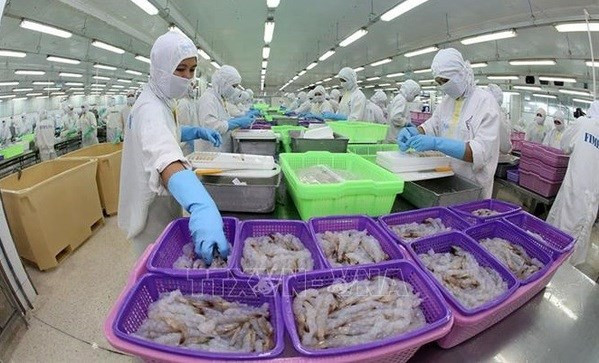
Nguyen Manh Dong, Third Secretary of the Vietnam Trade Office in Japan, said that apart from the Vietnam-Japan Economic Partnership Agreement (VJEPA), the two countries have also joined other trade deals such as the CPTPP and the Regional Comprehensive Economic Partnership (RCEP), which brings more chances for Vietnamese aquatic products in this market.
Japan’s commitments in the CPTPP for aquatic products is high, including the exemption of 65% of the total tax lines and cutting the remaining in a roadmap of 6-16 years, he added.
The CPTPP allows Vietnam to import materials from 11 member countries to export to Japan with secured tax preferences, he added, holding that the deal brings great advantages for Vietnamese aquatic products in Japan in both origin and tax.
Currently, Japan is the third largest market of the Vietnamese aquatic sector, with export revenue reaching 638.91 million USD in the first five months of this year, up 15.7 percent year on year, accounting for 13.6 percent of the total export revenue of the whole sector.
However, the Vietnam Trade Office representative reminded exporters to strictly follow food safety regulations when exporting aquatic products to this choosy market to protect their interest and good image of Vietnamese fisheries sector.
He also advised domestic firms to try to keep their products’ price stable to win confidence from sensitive Japanese consumers.
Source: VNA